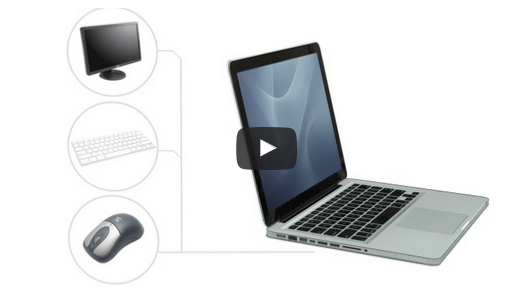If you're thinking of buying a computer, you may have wondered: Is a laptop right for me?Depending on how you plan to use it, the answer may be "yes. " In this video, we'll look at some of the ways that a laptop is different from a desktop, to help you decide. The biggest difference is portability. Laptops have to be small and light so that you can pick them up and take them with you. Since all of the basic parts are built-in, setting up a laptop is as easy as opening it. The downside is that the monitor is usually smaller than a desktop monitor, so you'll have less screen space. Another important difference is that laptops use a battery. The battery can provide power to the laptop when you're on the go, and it will recharge whenever it's plugged in. Ana dded benefit of having a battery is that if the power goes out, the battery can work as a backup power source. Instead of a mouse, laptops usually have built-in touch pad, also known as a track pad. You can control the pointer on the screen by using a drawing motion with your finger. If you haven't used a touch pad before, the experience is a little bit different from using a mouse, and it may take a while to get used to. If you're buying a desktop computer, you can mix and match almost any monitor, keyboard, and mouse that you want. With a laptop, you won't have quite as much freedom, since everything is built-in. However, if you want to have the best of both worlds, you can use your laptop's ports to connect a separate monitor,keyboard, and mouse -- basically turning your laptop into a desktop. And of course, when ever you want to, you can simply disconnect everything and take your laptop with you. As you can see, there are some important differences between laptops and desktops. So depending on your preferences, you can decide which one best suits your needs.
Source : GCFLearnFree.org

EmoticonEmoticon